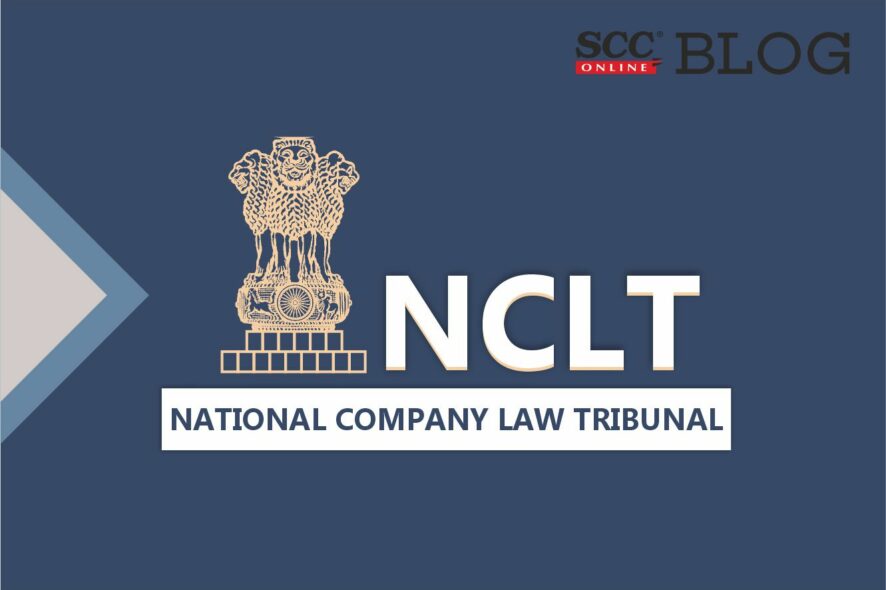National Company Law Tribunal, New Delhi: The Bench of Ashok Bhushan J., Chairperson, Rakesh Kumar Jain and Rakesh Kumar, JJ, Judicial Members, and Barun Mitra and Naresh Salecha, Technical Members, have held that lease rentals for business purposes fall under the definition of ‘Operational Debt' as per Section 5(21) of the Insolvency and Bankruptcy Code, 2016 (IBC).
Background of the case
The Appellant, corporate creditor entered into a license agreement with the Respondent, corporate debtor for five years. As per the agreement the appellant granted a license to the respondent to use a building for business purposes with a total super area measuring 31000 sq. ft. The license fee was agreed to be Rs 4,00,000/- plus government taxes on monthly basis.
The respondent made payment to the appellant through two cheques of amount Rs 20,00,000/- each dated 07-05-2018 and 08-10-2018 respectively. Both the cheques were dishonored. On 03-05-2019, the Appellant sent a demand notice under Section 8 of IBC, to which no reply was given by the respondent. Hence, on 09-05-2019, the appellant filed an application for initiation of the Corporate Insolvency Resolution Process against the respondent under Section 9 of IBC.
The Adjudicating Authority dismissed the application under Section 9 of IBC stating that the claim arising out of a grant of license to use the immovable property does not fall in the category of goods or services, thus, the amount claimed in Section 9 Application is not an unpaid operational debt. Therefore, the appellant filed a company appeal before a larger bench.
The issue before the bench
-
Whether the claim of the Licensor for payment of License Fee for use and occupation of immovable premises for commercial purposes is a claim of ‘Operational Debt' within the meaning of Section 5(21) of the Code.”?
Observation and Analysis
The coram made the following observations: –
-
The definition of ‘operational debt' as contained in Section 5 (21) IBC, the definition clause provides that ‘operational debt' means a claim in respect of the provision of goods or services.
-
Definition under Section 5(21) IBC uses the expression ‘services' which is not defined under the IBC. When an expression used in the statute is not defined, the Court has to explain the meaning of the undefined expression under the well-established rules of statutory interpretation.
-
The term operation is derived from “operate” and “operating cost” is an expense incurred in the conduct of the principal activities of the enterprise therefore, operational debt is also a debt that is incurred in the conduct of the principal activities of the enterprise.
-
Further, Coram stated that Bankruptcy Law Reforms Committee Report can be treated as an aid for interpretation for IBC which explicitly provides that a lessor can be treated as an operational creditor.
-
As the ‘operational debt' as defined in Section 5(21) IBC has a meaning much wider than the essential goods and services. Essential goods and services are entirely different concepts and the protection under Section 14(2) IBC as provided for is an entirely different context.
-
The observations made in the case of M. Ravindranath Reddy v. Mr. G. Kishan, 2020 SCC OnLine NCLAT 84 that there has to be nexus to the direct input or output produced or supplied by the Corporate Debtor, is a much wider observation not supported by the scheme of the IBC. Therefore, the case does not consider the extent and expanse of the expression ‘service' used in Section 5(21) of the IBC and does not lay down the correct law.
-
The observation made in the case of Promila Taneja v. Surendri Design Pvt. Ltd. – 2020 SCC OnLine NCLAT 1105 in respect definition of “service” as mentioned under the Consumer Protection Act, 2019 and the Goods and Services Act, 2017 (CGST Act) cannot be referred to for interpretation of the term “Operational Debt” as these acts are not mentioned under Section 3(37) of the IBC. It reiterated the law laid down in the M. Ravindranath Reddy case and hence, the judgment cannot be followed.
In the light of the above observations made, the Bench opined that in the present case, where the agreement itself contemplates payment of GST for the services under the agreement, the definition of ‘service' under the CGST Act can be referred. Hence, the expression ‘service' in Section 5(21) of the IBC includes license payments. Therefore, the claim of the Licensor for payment of license fee for use of Demised Premises for business purposes is an ‘operational debt' within the meaning of Section 5(21) of the IBC.
[Jaipur Trade Expocentre Pvt Ltd versus Metro Jet Airways Pvt Ltd, 2022 SCC OnLine NCLAT 263, decided on- 05-07-2022]
Advocates who appeared in this case :
Ms. Sanjana Saddy, Mr. Sanyat Lodha & Ms. Harshita Singhal, Advocate, for the Appellant;
Mr. Vikrant Arora & Mr. Manish Verma, Advocates, for the Respondent.







